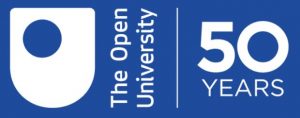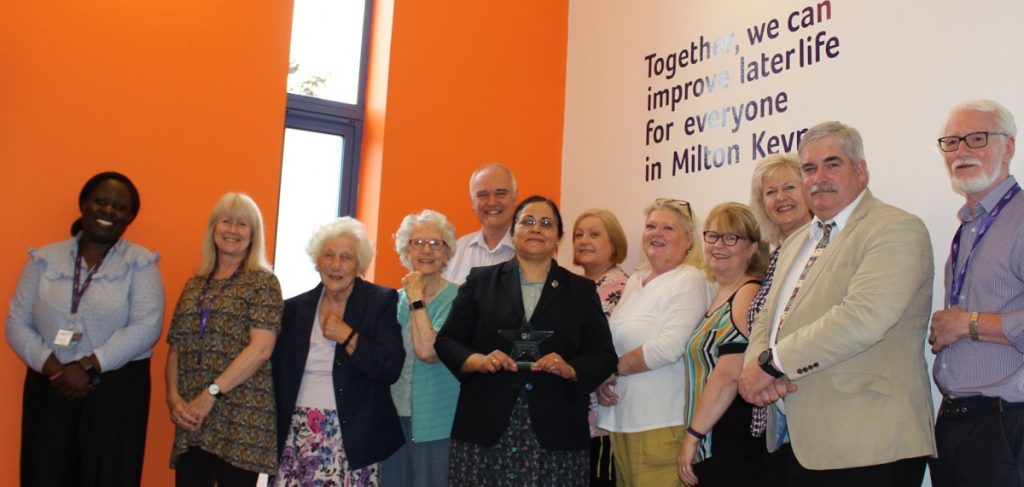
The Open University, 50th Anniversary #OU50
The Open University is celebrating its 50th anniversary this year.
To mark this landmark birthday, the OU is building an exciting programme of events and activities that will shine a light on the staff, students, donors and partners who have shaped our much-loved institution.
Select #OU50 for more details about this programme.
When the OU was founded, it was underpinned by a mission for social justice that informs everything we do; to be open to people, places, methods and ideas.
Since that time, the ways that we realise our mission have changed. We now talk of open and engaged research, involving stakeholders, end-users and members of the public over any or all stages of a research process.

Professor Mary Kellett, Vice-Chancellor of The Open University.
“We remain committed to creating the conditions where high-quality engagement can flourish and where excellence is recognised and valued. In embedding the principles, values and reflective practices of engagement within The Open University, we want to ensure that our academic work has relevance in wider society, embracing an ‘ecology of openness’ aligned with our long-standing mission to promote social justice.”
Professor Mary Kellett, Vice-Chancellor of The Open University
Building capacity in open and engaged research
Alongside the 50th anniversary programme of events and activities the university has produced a new Research and Enterprise (R+E) Plan. One of the key objectives of this plan is to: build our capacity in open and engaged research through increased and widened public and stakeholder engagement.
In line with the OU’s new R+E Plan, we have recently updated our entry on the NCCPE’s Manifesto for Public Engagement.
In that revised entry we feature exceptional examples of open and engaged research, involving OU academics working in partnership with stakeholders, end-users and members of the public.
 Research participants and collaborators from Age UK Milton Keynes. Credit: Pandora Kenyon.
Research participants and collaborators from Age UK Milton Keynes. Credit: Pandora Kenyon.
In showcasing these examples, we argue that:
“The Open University’s vision for engagement involves a uniquely extended community, internationally, nationally and across the UK’s devolved nations. Academics, stakeholders, students, end-users and members of the public are encouraged to engage through rigorous, responsive and responsible ways of working, mixing methods of participation and modes of communication to deliver excellence in the planning for, enactment and assessment of open and engaged practices.
Engagement has always been integral to the Open University’s social justice mission, putting people at the heart of everything we value and do. We are committed to increasing fairness in knowing through open and engaged practices where academics meaningfully interact with stakeholders, students, end-users and members of the public to:
- promote responsible and responsive innovation;
- embrace fair and equitable practices in exchanging data, information and knowledge;
- inspire our uniquely extended community to deliver excellence;
- work with ‘publics’ over any or all stages of a research process, from issue formulation, the production or co-creation of new knowledge, to knowledge evaluation and dissemination;
- influence the shaping and framing of the Open University’s teaching, research and knowledge exchange activities within the context of social and economic needs whether at local, regional, national, international or global levels.”
Putting strategic planning into practice
Over the coming months, we will be developing an implementation plan to operationalise these principles. More immediately, as part of the OU’s 50th anniversary programme of events, two inaugural lectures will explore aspects of our approach to open and engaged research.
The first, delivered by Professor Martin Weller on 19 February (18.00-19.00 GMT), will examine what the term ‘open’ means and consider what an ‘Open University’ would look like if we were to invent it now. Select Aspects of Open: The evolution of the meaning of open education to book a ticket to attend the lecture in person, or to access the link to the live webcast.
I will deliver the second of these lectures, on 12 March (18.00-19.00 GMT), on the need to investigate and inform practices of representation and engagement to reduce epistemic injustice and promote fairness in knowing. Select ‘Fairness in knowing’: How should we engage with the sciences? to book a ticket to attend the lecture in person, or to access the link to the live webcast.
